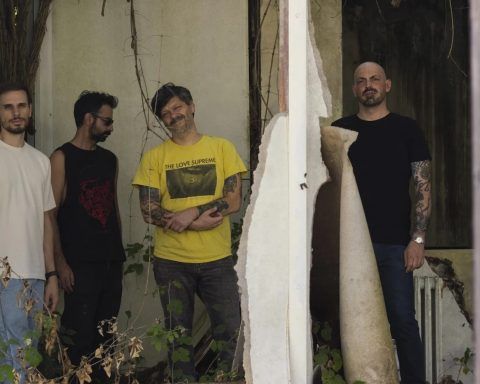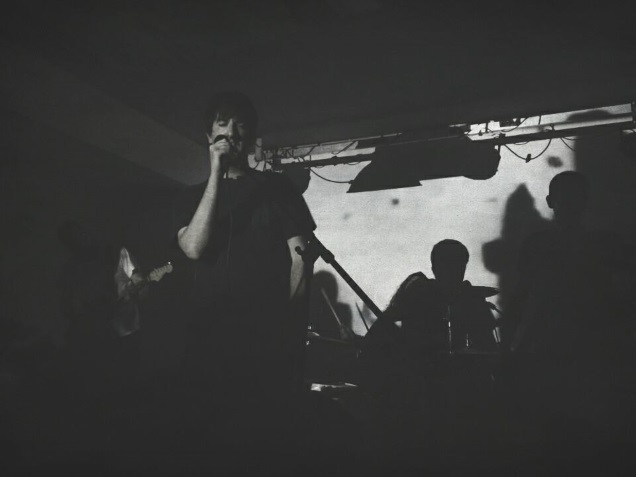Words by Albert Ferkl.
Since formation in 1994, DEERHOOF have gained the love of many with album upon album of peculiar self-produced music. Well-known for their varied experimental blends of cheerful pop and punk noise, they have developed a quirky sound that is typically light and heavy at the same time. This year the band invited many guests into the studio to produce Mountain Moves, a 15-track record which stands out in their impressive discography as being simultaneously of their most diverse and their most coherent, featuring an array of catchy melodies, hybrid sounds, and political sentiments.
Released on September 8, the album comes out just as DEERHOOF are taking a break between a short European tour and an ensuing US tour starting on the West Coast on 15 September. I had the pleasure of visiting the first date of the former at the punk club Underdogs’ in Prague on 25 August. Proclaiming that DEERHOOF are at maximum energetic capacity due to being well-fed and fresh into touring, founder Greg Sauntier kept the band’s sharp-yet-dancy set moving on his minimal drum kit until all forces were depleted and all parties satisfied. As singer Satomi Matsuzaki confirmed to me afterwards, this was the first time the band performed songs from Mountain Moves, specifically the tracks “Con Sordino”, “I Will Spite Survive”, and “Come Down Here & Say That”. “I Will Spite Survive”, which was performed on record with Wye Oak frontwoman Jenn Wasner, is something of a lead single. It typifies the sound evident at the heart of the album: anthemic but volatile indie pop/art rock combining a playful attitude with a serious message of active resistance despite marginalization. “Con Sordino” also demonstrates this sound beautifully, being an almost sad call against the feeling of voicelessness, while for the recording of “Come Down Here & Say That” DEERHOOF invited Lætitia Sadier of Stereolab to express a frisky political attitude.
Continued below…
“Con Sordino” has a distinct post-punk feel to it, just as “Come Down Here & Say That” is driven by funk. Both genres are strong recurrent influences on the album, alongside electronic and ambient music, psychedelic and progressive music, jazz and world music, and alternative rock. This being a DEERHOOF album, noise music elements are also evident throughout, but take a back seat in relation the BAND’S typical work. Different songs emphasize different influences, each comprising a number of shifting and overlapping sounds and melodies. Mid-album track “Your Dystopic Creation Doesn’t Fear You” even ventures into hip hop with the appearance of Asian-American rapper Awkwafina, while title track “Mountain Moves” showcases the avant-garde jazz of guest saxophonist Matana Roberts. There are also three covers, nodding to artists who have shaped the tradition of political music: Chilean artist Violeta Parra, African-American vocal group the Staple Singers, and closing the album, Bob Marley. At this final track, it is evident that DEERHOOF have achieved something notable here; a magnificent celebration of hybridity which parallels the melding of sounds and genres with powerful lyrics, providing a collection of moving anthems for the independent-minded.













